FACTSHEET
RESEARCH MASTER’S PROGRAMME PHILOSOPHY
Welcome!
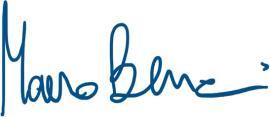
On behalf of my colleagues and the returning students, let me welcome you to the Research Master Philosophy at Utrecht University! It’s terrific to have such a diverse and talented group of students joining the programme this year. I’m looking forward to meeting you during the Introduction Days in September 2023 and to help you get your studies off to a good start. This is the aim of this factsheet. We have gathered some important information as a guidebook to help you prepare for your arrival in Utrecht and for the coming years. For more information, please visit the student’s website (https://students.uu.nl/en/hum/philosophy). Where necessary, this booklet will direct you to the relevant webpages for additional information. We also encourage you to visit the department’s site for information about our research: https://www.uu.nl/en/research/philosophy.
The Research Master’s degree in Philosophy is situated within the Research Institute for Philosophy and Religious Studies, within the faculty of Humanities at Utrecht University. Our research is primarily concerned with central issues of Western philosophy, their history, their systematic conceptualizations and their applications. Its hallmark is a style of doing philosophy that is informed both by the history of philosophy and by the social and natural sciences. It is our conviction that a fruitful integration of fundamental research and practical applications requires an awareness of the opportunities and challenges of interdisciplinary work. Examples are logic and philosophy of science, historiographical and editorial practices, meta-ethics and applied ethics.
The Research Master’s degree in Philosophy aims to provide a challenging and stimulating research-oriented program of study in which talented and well-prepared students can acquire the academic skills and knowledge needed to participate in international philosophical discourse and to make initial research contributions to their chosen areas of philosophy. The program’s primary aim is to develop the next generation of scholars and researchers in philosophy within an academic context (typically with PhD studies as the next step). The skills acquired during the program the capacity for careful, in-depth analysis of complex ideas and texts, as well as the precise and independently researched presentation of this analysis are also well suited for work in a variety of careers, and some of our graduates choose careers outside of academia.
We don’t lack ambition, for ourselves and for you. But that doesn’t mean any of us can do it all on our own, or that we don’t occasionally fall on our faces. On that note, I’d like to encourage you to suggest improvements and correction. This factsheet will always be a work in progress!
All the best for a successful start to your studies!
Mauro Bonazzi RMA Philosophy Programme Coordinator
 P ROF DR M AURO B ONAZZI
P ROF DR M AURO B ONAZZI
YOUR CO-STUDENTS
Actually, those who are likely to have the largest impact on you in the coming years are your classmates, with whom you’ll be discussing philosophy (and who knows what else!) constantly: in classrooms and hallways, cafés and pubs, at conferences and on park benches.
There are several different contexts in which you’ll interact with other RMA Philosophy students:
• You’ll interact with all the first-year students in the mandatory “Core Seminar” courses
• You’ll interact with all RMA Philosophy students at the Utrecht Philosophy Lectures, at various social events, and in the “Wippermaffle” gatherings;
• You’ll interact with first year and second-year students who share your research concentration (Ethics Institute, History of Philosophy, or Theoretical Philosophy) in the Research Colloquia.
Most of the students in your classes and tutorials will be other RMA Philosophy students, but you’ll also be taking courses with students from the one-year MA in Applied Ethics, the two-year RMA in History and Philosophy of Science, and other programmes, particularly in the more interdisciplinary courses. As a student in the Graduate School of Humanities, you will also participate in a number of events organized by the Graduate School, including the Graduate School of Humanities conference, career development events, etc. You will also have the opportunity to meet students from other RMA Philosophy programmes via events organized by the Dutch Research School in Philosophy (OZSW) or the OIKOS, the National Research School in Classical Studies. Last but not least, you’ll have the opportunity to get to know some of our programme’s alumni, who are terrific resources for career and academic advice – not to mention tips on how to stay sane and have fun during the next two years! In addition to the annual gettogether with alumni, there is a LinkedIn community.
THE THREE RESEA RCH GROUPS: “GF” – “TF” – “PF”
Within the department, each member of the Philosophy academic staff belongs to one of the three “Research Groups”: History of Philosophy, Theoretical Philosophy, or the Ethics Institute, often referred to, respectively, as “GF” (Geschiedenis van de Filosofie), “TF” (Theoretische Filosofie), and “PF” (Praktische Filosofie – since the Ethics Institute is also for political philosophy, moral psychology, aesthetics, etc.). Although everyone is a member of one of these groups our research, teaching, and collaborations cut frequently across these lines. That said, they do represent the academic “home base” for the staff (including especially the post-docs and PhD researchers), and RMA Philosophy students will also need to choose one of these research groups (and corresponding Research Colloquium) in which to participate.
Owing to limits of space, the descriptions of staff below will be very brief and selective. For more information – and more staff members! – go to the main Philosophy website –https://www.uu.nl/en/research/philosophy – follow the links to “Staff”.
DO YOU WANT TO PARTICIPATE?
Curriculum Committee
The Curriculum Committee consists of students and staff members who jointly discuss and assess the quality of the education in the Master’s programme. Every year, the committee is looking for new student members. If you are interested in becoming a member, or if you want to contact the committee about the standard of education, please contact the president of the committee, Dr Niels van Miltenburg (n.vanmiltenburg@uu.nl)
CORE TEAM OF LECTURERS
P ROF DR M AURO B ONAZZI Coordinator MA Programme. He holds the Chair of History of Ancient and Medieval Philosophy at the University of Utrecht. His main areas of research are Plato and Platonism, and Greek Political Thought. His current project explores the uses and abuses of Greek thought in modern philosophy.
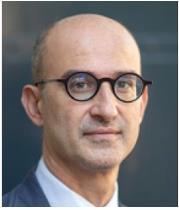
■ ■ ■ GF
P ROF D R T EUN T IELEMAN
Teun Tieleman studied classics and philosophy at Utrecht University, where he earned his PhD with highest distinction (1992). His research focuses on the interactions between philosophy and science, in particular medicine, in antiquity, Galen of Pergamum and his influence, Stoicism, theories of emotion as well as the ways in which philosophy was taught and transmitted in the GraecoRoman world.
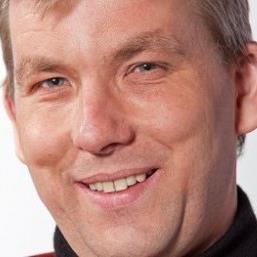

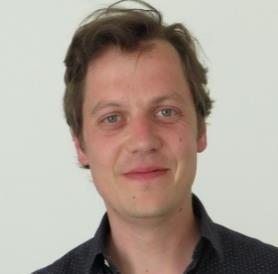
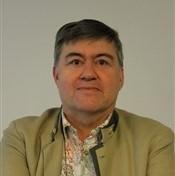
■ ■ ■ GF
D R . J O VAN C AUTER
Jo van Cauter is an assistant professor in the history of early modern philosophy at Utrecht University. His research is on the history of early modern philosophy, especially the work of Spinoza. He is particularly interested in issues arising from the interactions among philosophy, theology, and political society in the period of the Scientific Revolution.
GF
D R M AARTEN VAN H OUTE
Maarten van Houte studied philosophy in Utrecht and also got his PhD there, with a thesis on the theological ideas of the philosopher and statesman Seneca the Younger. He is now a lecturer in (mostly ancient) philosophy at the Department of Philosophy & Religious Studies. His main interests are philosophical theology, political philosophy and Imperial Stoicism.
D R K ATHARINA K INZEL
Katherina Kinzel studied philosophy and political science in Vienna. Since 2020, she is Assistant Professor in the history of modern philosophy at Utrecht University. She works on the history of “scientific philosophy” from Kant to the Vienna Circle, focusing primarily on the encounter between neoKantianism and hermeneutics.

P ROF . D R . P AUL Z ICHE
Paul Ziche studied philosophy, physics, and psychology at Munich and Oxford, and took his PhD and his “Habilitation” at the Ludwig-Maximilians-Universität in Munich. His research focuses on the interaction between philosophy and the ‘other’ sciences, with a particular emphasis on the periods around 1800 and around 1900 He is especially interested in the philosophy of German idealism
■ ■ ■ GF
■ ■ ■ GF
■ ■ ■ GF
■ ■ ■
■ ■ ■ TF
D R J ANNEKE VAN D IS Associate Professor in the Theoretical Philosophy group of the Department of Philosophy and Religious Studies at Utrecht University. Her current research interests include epistemology and philosophy of AI.
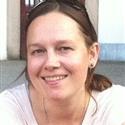

■ ■ ■ TF
D R . M ICHAEL D E
Michael De is Assistant Professor in Theoretical Philosophy. He graduated from the University of St Andrews His main research interests lie in metaphysics, logic, and epistemology. He is articularly interested in systematic metaphysics, modality, using non-classical logics to solve philosophical problems, and analyses of knowledge.


■ ■ ■ TF
P ROF . DR . D ANIEL C OHNITZ
Daniel Cohnitz holds the chair for theoretical philosophy at Utrecht University; he is currently the Head of the Department. Cohnitz studied philosophy, German literature and language, and history at the Heinrich Heine University Düsseldorf. His research interests include metaphilosophy, epistemology, metaphysics, the philosophy of mind, language, mathematics, and logic, and related areas of philosophy and cognitive science.
■ ■ ■ TF
D R J OHANNES K ORBMACHER
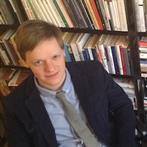
I am Johannes, a mathematical philosopher, who mainly works at the intersection of logic, epistemology, and metaphysics. I also love (the philosophy of) mathematics.
■
■ ■ TF
P ROF . D R . R OSALIE I EMHOFF
Rosalie Iemhoff is a logician specializing in mathematical logic. Her research interests range from mathematical to philosophical topics, with a special interest in proof theory, its questions and its methods. She joined the Department of Philosophy at Utrecht University in 2006.
■ ■ ■ TF
D R . A NNEMARIE K ALIS
Annemarie Kalis is associate professor in Theoretical Philosophy. Her areas of expertise are philosophy of psychology (in particular the themes agency, normativity and reasoning), action theory and philosophy of mind. Since 2019 she coordinates a five-year NWOVIDI project on the question what it means to shape our own action space.

D R . N IELS VAN M ILTENBURG Chair of the Curriculum Committee
Niels van Miltenburg, is assistant professor theoretical philosophy at Utrecht University. His research is on the border between theoretical and practical philosophy.


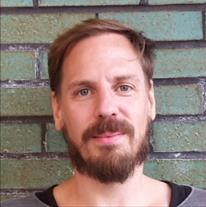
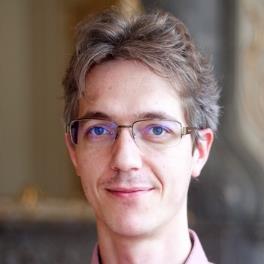

D R . J ESSE M ULDER
Jesse Mulder is assistant professor theoretical philosophy, and in the midst of a NWOfunded VENI research project (2017-2021) entitled Unifying Metaphysical Pluralism. His research interests encompass a broad range of metaphysical topics but also extends into related neighboring areas within philosophy of mind, philosophy of science, action theory, and ethics.
■
P ROF DR J OEL A NDERSON
D R . C OLIN C ARET
Colin Caret is an Assistant Professor in Theoretical Philosophy. His research focuses mostly on philosophical logic, the practice-based approach to logic and mathematics, belief and knowledge ascription, and issue of bounded rationality. Colin also has a long-standing interest in Daoist and Buddhist philosophy.
Joel Anderson studied philosophy at Princeton University, Northwestern University (USA) and GoetheUniversität (Frankfurt/M). From 1995-2003, he taught philosophy at Washington University in St. Louis. He joined the department in Utrecht in 2004, as lecturer in philosophical anthropology. His research focuses on philosophical anthropology (autonomy; normativity in human agency), ethics (discourse ethics; neuro-ethics), and social theory (mutual recognition; responses to hyper-complexity).
D R . E RIK S TEI
Erik Stei is an Assistant Professor in the Theoretical Philosophy Group. He works mainly in the philosophy of logic, in the philosophy of language, and in epistemology. He is particularly interested in logical pluralism, the normativity of logic, knowledge ascriptions, and context-sensitivity in natural language.

P ROF . D R . R UTGER C LAASSEN
Rutger Claassen is Professor of Political Philosophy & Economic Ethics at the Department of Philosophy and Religious Studies of Utrecht University. His research is in the field of socio-economic justice, where he defends a version of the capability approach – pioneered by economist Amartya Sen and philosopher Martha Nussbaum, which focuses on the development of personal capabilities instead of material resources as the central criterion for a just society.
■ ■ ■ TF
■ ■ ■ TF
■ ■ ■ TF
■ ■ ■ TF
■ ■ PF
■ ■ ■ PF
D R R OMY E SKENS
Romy is assistant professor in the Ethics Institute. She is interested in a wide range of questions in normative ethics, social and political philosophy, and moral psychology. At the moment, her research focuses on issues in the ethics of mind, moral equality and partiality, personal relationships, and moral emotions such as gratitude, resentment and agentregret.
D R . D OROTHEA G ÄDEKE
Dorothea Gädeke is an Assistant Professor in Philosophy. Prior to joining Universiteit Utrecht in September 2018 she worked at Goethe-Universität Frankfurt, Germany.
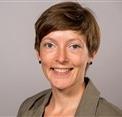
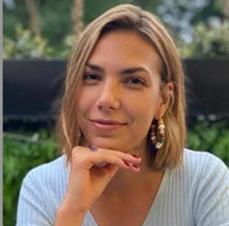
Dorothea's research focuses on Republicanism and structural injustices, power and democracy, especially with regard to development and the relations between the global north and the global south.
D R . C LINT V ERDONSCHOT
Clint Verdonschot is a lecturer with UU's Ethics Institute. Clint is interested in a wide variety of topics in ethics, political philosophy, and aesthetics, particularly in the context of the (modern) history of philosophy, and particularly where these disciplines overlap.



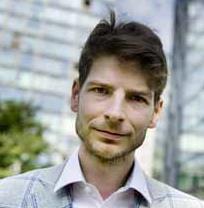
■ ■ ■ PF
D R H ANNO S AUER
Hanno Sauer is an Assistant Professor of Ethics at the Department of Philosophy at Utrecht University and a member of the Ethics Institute. He studied philosophy and literature at Philipps-Universiät Marburg and Johann Wolfgang GoetheUniversität Frankfurt and holds MA degrees in Philosophy and Literature from Frankfurt His main research interests are in metaethics and moral psychology.
DR . J OS P HILIPS
Jos Philips is an Assistant Professor in Political Philosophy and Ethics at the Ethics Institute. He works on global justice (esp. human rights, poverty) and sustainability. You can find more information h e r e. Jos holds a PhD in philosophy from Radboud University Nijmegen (2007). He is coordinator of the Master Applied Ethics.
D R S ANDER W ERKHOVEN
Sander Werkhoven is a lecture at the Ethics Institute, part of the Department of Philosophy and Religious Studies. His areas of specialization are philosophy of medicine and psychiatry, normative ethics and meta-ethics - he also cherishes an active interest in the Post-Kantian European tradition. In 2015 he obtained his PhD from the University of Warwick (UK) with a thesis titled A Dispositional Theory of Health.
■ ■ ■ PF
■ ■ ■ PF
■ ■ ■ PF
■ ■ ■ PF
■ ■ ■ PF
Lucie White is an assistant professor at the Ethics Institute. She’s particularly interested in personal autonomy and identity, bioethics, the ethics of technology, philosophy of science, and, lately, the ethics of crisis and catastrophe. She received her PhD from the Australian National University in 2017, and, before coming to Utrecht, worked for several years as a postdoc in Germany.
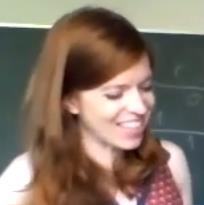
■ ■ ■ PF
He is currently Assistant Professor at the Ethics Institute at Utrecht University and Honorary Associate Professor at the Steve Biko Centre for Bioethics at Wits University in South Africa. Much of his research focuses on the ethical implications of ageing and life extension.

■ ■ ■ PF
D R . L UCY W HITE
D R C HRIS W AREHAM
STUDY ADVISOR
Facing issues with your studies? The study advisors are there to help and support you to successfully complete your degree. They can act as confidential counsellors, advise on issues regarding illness and special circumstances and, together with you, look at the possibility to cope with the studies while dealing with disabilities or chronic illnesses. They can also help with specific arrangements and procedures, such as complaints, objections and appeals. You can find more information on the university website, at: https://students.uu.nl/en/hum/philosophy/contact/study-advisor
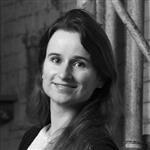
■ ■ ■ M ARLOES L AMMERTS
THIS PROGRAMME
AIMS AND CHARACTER
As we said at the outset, the RMA Philosophy is a research-oriented programme of study, and this requires balancing a clear and integrated structure with flexibility to allow for the in-depth pursuit of individual specializations. The structure of the programme is rather complex, with numerous moving parts. If you find yourself getting lost, just ask second-year students or your tutor!
At its core, programme aims to provide the following:
• a cohesive curriculum that enables students to acquire advanced knowledge of key concepts, debates, methods, and texts that are relevant for philosophical research and publication in the field of philosophy and its history, as well as more specialized knowledge of and insight into the same for a chosen area of specialization;
• structured opportunities and regular feedback that enable students to develop their ability to express themselves clearly and cogently, and to participate in professional philosophical discussions at an advanced academic level, both in writing and speaking;
• the integration of students into a research community within which they can learn to see the relevance of different theoretical and interpretive positions, and to critically assess them on the basis of an independent analysis of the arguments and an informed understanding of the textual support for the claims;
• structured opportunities to develop an awareness of a variety of philosophical approaches and research projects (internationally, nationally, among the programme’s research staff, and with interdisciplinary collaborators) and to position their own philosophical approaches with respect to these approaches;
• training and support for the development of a career path, including an understanding of what is required for a successful academic career, how to apply for grants, and what employment opportunities exist, outside academia, for putting to use the skills and knowledge acquired in the programme.
This, along with further elaboration of the aims of the RMA Philosophy and much more, can be found in the Education and Examination Regulations ("EER" in Dutch, “OER”), available at: https://students.uu.nl/en/hum/philosophy/practicalinformation/education-and-examination-regulations-eer. Note that the EER has two parts: one that applies to all RMA programmes in the Graduate School of Humanities (and which is approved by the Faculty Council) and another that applies specifically to the RMA Philosophy (over which the DPAC has the primary authority). Taken together, they are the legal document that determines the core rules and regulations governing the RMA Philosophy.
REQUIRED COMPONENTS OF THE DEGREE PROGRAMME Min. Required w/ Study Abroad Core curriculum (Required Courses) 30 EC 25 EC Topics Seminars (Restricted choice) 20 EC 10 EC Tutorial (Individual Required) 10 EC 5 EC “Interdisciplinary Research Area” Course (Restricted choice) 5 EC 5 EC Research School Courses (Individual Required) 10 EC 5 EC Electives Courses (Individual Choice) 15 EC 10 EC OVER THE BORDER (STUDY ABROAD) (optional) 30 EC Thesis (Required) 30 EC 30 EC
The study programme includes the following components, having the specified credit load:
• The Core Curriculum (60 EC total) is composed of the following “Compulsory” elements:
o Core Seminar 1 & Core Seminar 2 (20 EC total; year-long sequence)
o The Research Colloquium of both years (10 EC total)
o The thesis (30 EC)
• Restricted Choice elements (25 EC). You must complete:
o At least 4 Topics Seminars (20 EC total)
o At least 1 course in the Interdisciplinary Research Area (5 EC)
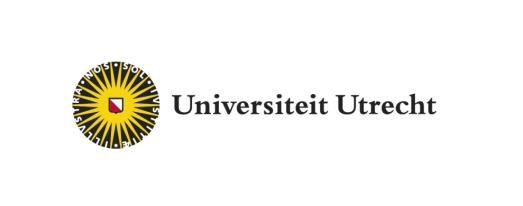
o
• In the free choice area (shown in green) you must further complete:
o At least 2 tutorials (10 EC total)
o 10 EC of Research School Seminars
o 15 EC of freely elective MA courses, including internships, additional Topics Seminars, Research School Seminars or tutorials. Year 1 (2023-2024)
Topics
Topics Seminar / RSS / Tutorial / Elective
Topics Seminar / RSS / Tutorial / Elective Tutorial / Elective Internship / RSS Tutorial / Elective / Internship / RSS
Year 2 (2024-25) Research Colloquium Year 2 (5 EC )
Topics Seminar / Tutorial / RSS / Internship / Elective (5 EC for Research Colloquium)
Year 2 with Study Abroad is as follows Study abroad is encouraged but not required, and students who study abroad in an approved programme substitute 30 EC of “Across the Border” for the following items from the non-study-abroad programme:
• Tutorial 2 (Individual – Required)
• Research Colloquium 2 (Core Curriculum - Required)
• 10 EC electives (Electives - choice)
• 10 EC Topics Seminars (Electives - Restricted choice)
Block 1 Block 2 Block 3 Block 4 Core Seminar 1 Core Seminar 2 Research Colloquium Year 1
Seminar 1
Interdisciplinary
Topics Seminar 2
Research Area course (5 EC awarded in period 4 for Research Colloquium Year 1)
Topics Seminar / Tutorial / RSS / Internship / Elective Topics Seminar / Tutorial / RSS / Internship / Elective Thesis (30 EC ) Topics Seminar 3 Topics Seminar 4
More information on applying for study abroad: The Faculty of Humanities:
https://students.uu.nl/en/hum/philosophy/contact/international-office Utrecht University:
http://students.uu.nl/en/academics/study-abroad
CORE SEMINARS
There are two mandatory semester-long Core Seminars in the first year. Each seminar is co-taught be two members of the research staff and integrates different philosophical methodologies to examine a central issue in philosophy in depth
In addition to addressing far-reaching philosophical issues, it is also the context in which students gain training and experience regarding four key abilities: revising papers written for courses so as to submit them for a conference or for publication in a journal, developing a project proposal in connection with applying for grants, designing thesis research and writing a prospectus for a potential topic, and philosophical writing and presenting for a broader audience.
RESEARCH COLLOQUIUM YEAR 1 AND YEAR 2

The Research Colloquium is a "year-long module" that runs the full academic year and that you are required to complete both in your first and second year of study. Its aim is to provide students with insight into and hands-on experience with current philosophical research, scholarship, and debates. It is itself made up of three elements:
Research colloquium
Year-long colloquia are offered simultaneously in each of the three areas of the department's philosophy research programmes: Ethics Institute (PF), Theoretical Philosophy (TF), and History of Philosophy (GF). You select the most suitable Research Seminar in which to enroll in each of the two years of the programme. As courses, the Research Colloquia comprise participation in the colloquium meetings of graduate students, postdocs and academic staff in the respective research areas. The content is centered on the current research projects carried out by the staff.
Utrecht Philosophy Lectures
In addition, participation in the annual Utrecht Philosophy Lectures and workshops brings Research Master students into contact with work currently being undertaken by leading international scholars.
Graduate School in Humanities Conference
Starting in 2022, students are further expected to participate in the Graduate School in Humanities Conference, which is held each spring. More information about this will be made available in the course of the autumn.
Receiving credit for research colloquia: the research colloquium reports
Each year, RMA students must earn 5 EC of pass/fail credit for the Research Colloquium, which comprises three types of activities:
• regular, active participation in one of the biweekly philosophy research colloquia (Ethics Colloquium, Theoretical Philosophy Colloquium, or History of Philosophy Colloquium);
• attendance at the four annual Utrecht Philosophy Lectures and active, prepared participation in the corresponding RMA Symposia with guest speakers;
• participation in the annual Graduate School of Humanities conference.
To receive credit, you must also complete a report at the end of the second semester, describing (and reflecting on) your participation. Consistently, these reports end up being surprisingly thought-provoking – both to write and to read.
TOPICS SEMINARS
Topics Seminars are courses that focus on specific topics in a certain area of philosophy – usually closely linked with the lecturer’s current research. They are part of the restricted choice component of the degree programme, meaning you are required to complete at least four Topics Seminars (20 EC in total) but you can choose these four from a wide variety. The topics alternate every other year. In 2022-2023, these are the Topics Seminars on offer: https://students.uu.nl/en/hum/philosophy/curriculum
As with all courses, the instructors and specific content for the Topics Seminars of each following year are determined in the spring, in consultation with the DPAC (see 8.5). Information will be made available via Osiris.
INTERDISCIPLINARY RESEARCH AREA
The second part of the restricted choice is the Interdisciplinary Research Area. The objective of the Interdisciplinary Research Area is to confront students with disciplines outside their own area of expertise in order to provide new perspectives to their own research. You are required to complete at least 5 EC of courses within this area. In 2022-2023, you can choose from the following courses:
• History and Philosophy of Objectivity (block 3)
• Think Tank Institutions (block 3)
• Digital Ethics (block 3)
TUTORIALS
You should also complete at least 10 EC in tutorials. A tutorial is a very flexible course, the topic of which is decided in part by you. Normally about 2-5 students will participate in a tutorial with one or two staff members. The purpose of a tutorial is to provide the opportunity for in-depth study within one of the specialized areas of philosophical research in which the philosophy staff is engaged. Tutorials consist of regular sessions, in which you’ll meet with the tutorial leader to discuss research problems and challenges in their field of expertise and are concluded with a final research paper that often can function as a pre-study for your thesis.
Tutorials are very flexible in all their aspects – content, readings, time schedule, assignments are all to be determined by all participants in consultation with the instructor. Even the number of credits is flexible. Once agreed upon, the details of a tutorial should be specified at the start of the tutorial. All students have access to the Blackboard environment for Tutorials, where they can form tutorial groups and submit assignments for marking and archiving.
For list of last year’s tutorials please visit: http://rmaphilosophysitesuu.wikidot.com/
RESEARCH SCHOOL SEMINAR
All RMA Philosophy students are members of a Dutch national Research School. You should enroll in one of them by the end of the first week of classes. In most cases, that is the OZSW, the Dutch Research School of Philosophy (www.ozsw.nl). Students with a focus on philosophy in the context of Classical Antiquity are encouraged to affiliate themselves with OIKOS, the Dutch National Research School in Classical Studies (www.oikos.nl) http://www.ru.nl/oikos/rema/rema-curriculum/
You must complete two seminars (10 EC in total) of Research School Seminar Courses. Normally this will mean one seminar per year. If you are going abroad in your second year, it is recommended you complete these courses in the first year. You can select the seminar from a course list coordinated by the research schools. These are either of the following:
1) Seminars on the OZSW or OIKOS list of offered by various Dutch universities (including Utrecht)
If you make use of the designated seminars, you register for the selected course at the host university, using that university's course code and title. The results for that course, including course title and grade, are then subsequently registered as Research School Seminar Year 1 or 2 (see course codes above). If you complete more than 4 Topics Seminars this can be counted towards satisfying the “Research School Seminar” Requirement (you must specify this in your Study Plan). You can find a list of the course offerings and information about enrolling at another university here: http://www.ozsw.nl/courses-philosophy-research-master- programs/.
2) Special Research School offerings
In the case of special Research School offerings (such as the annual RMA Winter School or OZSW/OIKOS courses), credit and grades will be registered directly as Research School Seminar Year 1 or 2, on the basis of a report provided to the RMA Coordinator by the coordinator of the Research School event. Credits for the seminar varies, but the number of credits for the two Research School Seminars must add up to at least 10 ECTS. (For more on this, see section 7.2, “Dutch Research School of Philosophy.”)
ELECTIVES
If you have space left in the free choice area, you can choose to do one or more elective courses. Students may count any MA- level course as electives, in particular, any Topics Seminars, Research School Seminars, Interdisciplinary Research Area courses (beyond those required), internships, and the courses listed on: https://students.uu.nl/en/hum/philosophy/curriculum
In principle, however, any MA-level courses that makes sense for your Study Plan should count in your study programme and does not need special approval. (Though you should discuss this with your tutor.)
INTERNSHIP
One of the options open to you (and a way of earning “Elective” credits) is to do an internship in Utrecht, at another Dutch or foreign university or research institute. You will have to arrange your internship yourself, but your tutor and/or thesis supervisor can help you find one. We recommend that you seek the opportunity to take an active part in an on-going research project, either with our own research staff, or at a university elsewhere. You can also decide to do an internship at a non-governmental organization, a government agency or a cultural institution, provided your work there includes training in research. You will be coached by one of our staff. An internship is a good way to expand your professional network. You will learn about ongoing (and
emerging) research projects during the Research Showcases each year (during the Introduction Days), from the website and announcement, and in the Research Colloquia.
In all cases, your internship will involve two supervisors: the “internship supervisor” (in the case of teaching internships, the instructor for the course in which you are assisting; in the case of research internships, the person whose research you are assisting) and the “supervising lecturer” (another lecturer/staff member in the RMA Philosophy programme), who is responsible for (1) ensuring that the internship activities meet the objectives of an academic internship and (2) determining the final grade, in consultation with the internship supervisor. You will meet regularly with the internship supervisor to discuss your progress and, in case of a teaching internship, the material being discussed in the study groups and didactic strategies. More information: https://students.uu.nl/en/hum/philosophy/curriculum/internshipsThesis
R ESEARCH INTERNSHIP
In a research internship, you either carry out research on behalf of an organization or active participation in research project, typically at Utrecht University. Typically, this involves doing archival research, assisting in the preparation of a grant application, helping to prepare a manuscript, book or special issue for publication, or surveying philosophical literature as part of a research project. Other activities are possible. The area of the research should broadly philosophical and a clear research component, as assessed by the supervising instructor. The specific tasks are specified, before the start of the course, in a workplan.
The goals of a research internship are:
• to become familiar with possible research professions and to participate in the process of doing philosophical research within an organization or research project;
• to gain experience applying the knowledge and/or skills learned during your studies in a practical context;
• to expand your mastery of methods and knowledge employed in the context of the research.
The grades for the internship are based on:
• the Internship Supervisor’s assessment of the intern’s on-site performance is assessed,
• the Supervising Instructor’s assessment of the quality of the self-reflection report and the degree to which it provides convincing evidence that the intern engaged in the internship in a way that contributed to his or her skills as a research; and
• the joint evaluating of the quality of the Research Deliverables.
T EACHING INTERNSHIP
In a teaching internship, you teach study groups (‘werkgroepen’) in an Utrecht University philosophy course. In addition, you are involved in the development of new study material, assist (under supervision) with the assessment of student work, evaluate the course in order to improve future editions, and/or take part in educational research. The specific tasks are specified, before the start of the course, in a workplan.
The goals of a teaching internship are:
• to become familiar with possible teaching professions and to participate in the process of teaching, leading study groups, assessing student work, and preparing supporting educational materials;
• to gain experience applying the knowledge and/or skills learned during your studies in a practical context;
• to expand your mastery of methods and knowledge employed in the context of teaching the subject matter of the course.
THESIS
You must complete the Research Master's programme by writing a Research Master's thesis (30 EC) based on original research. A Research Master's thesis is a scholarly text in which you are expected to contribute, on the basis of independent research, to a debate within your sub-discipline. In your thesis, you must develop a sustained analysis of a focused philosophical problem – one that you’ve already gained familiarity with from prior courses or tutorials.
The central research question, to be determined in consultation with your thesis supervisor, should be clearly formulated at the beginning and its relevance to scholarly discussions within the discipline set out. The body of the text should explicate and defend your approach, your findings, and your overall argument in favor of your central claims. In your conclusion, you should analyze your findings in the light of your original question and explain the broader implications of your conclusions.
The thesis should be written in correct and clear English. It will normally be around 30.000 words long and may not exceed 40.000 words (including notes and bibliography).
S UPERVISION AND ASSESSMENT
The thesis will be assessed and graded by the supervisor and one other reader. At least one of the assessors should not have been involved in the supervision of the thesis writing.
The composition of the assessing committee must be approved by the Programme Coordinator.
Your Research Master's thesis will be evaluated using a standardized assessment form (http://students.uu.nl/en/files/gwalgemeenrma-assessmentform-thesispdf).
F RAUD AND PLAGIARISM
You are expected to be familiar with and to observe the norms and values that ensure academic integrity. For more information, refer to Fraud & Plagiarism (8.4). Therefore, when you start writing your thesis you will have to hand in a plagiarism rules awareness statement. With this, you declare that you are aware of and will abide by Utrecht University’s norms and rules regarding fraud and plagiarism. If your professor or supervisor suspects fraud or plagiarism, they must notify the board of examiners. Please be aware that submitted prior coursework, for which you have already received credit, can constitute fraud.
IMPORTANT FOR HUMANITIES STUDENTS
New students students.uu.nl/hum-new Practical information for new students at the Humanities faculty.
Academic calendar students.uu.nl/hum-calendar
Information about days off, course registrations and change-of-enrolment days.
UU online


Information about our online systems and how to log in: students.uu.nl/hum-online In need of a manual? IT manuals: https://manuals.uu.nl/en
REGISTRATION, PROCEDURES, INTERNSHIP INFO
Student Information Desk Humanities students.uu.nl/hum-contact
Programme related matters, such as
• course registration
• course schedules
• study results & study progress (Osiris)
• graduation
Student Services students.uu.nl/en/contact/student-services
Studying at Utrecht University in general:
• registration as a UU student

• tuition fees
• elite athletes
• disability or chronic illness
Internship coordinator students.uu.nl/hum-internshipcoordinator


Information about:
• guidelines and procedures
• internship placements
QUESTIONS ABOUT ENTERING THE JOB MARKET
Career Services students.uu.nl/hum-careerservices
Advice on getting a job after graduation through workshops, CV check-up, and coaching. Your programme coordinator will inform you about programme-specific events.
NEED EXTRA HELP?
Study advisor: students.uu.nl/hum-studyadvisor


Student psychologist: students.uu.nl/psychologist
Workshops: Skills Lab: students.uu.nl/en-skillslab
THINKING OF GOING ABROAD ?
International office Humanities: students.uu.nl/hum-io
OTHER FACILITIES
University Library: students.uu.nl/hum-library
Olympos sports centre: olympos.nl/en-us/home.aspx
Parnassos cultural centre: uu.nl/en/parnassos
FACT! You can find your grades, student card and timetable in the MyUU portal and the MyUU app: students.uu.nl/en/myuu and students.uu.nl/en/ myuu-app
FACT! In the second semester, you will have to register in Osiris for courses you wish to attend. If you want to switch courses, you can do so on the change-ofenrolment days before the start of the relevant block.
FACT! Deadlines are always listed in the course syllabus, which your lecturer will provide approximately 2 weeks prior to the course’s ’start.
FACT! If you need more information about specific aspects of your programme, e.g. internships or thesis, please see the Curriculum page on the programme website via students.uu.nl/hum.
FACT! Check students. uu.nl/hum-studentlife for information about living, jobs, sports and leisure in Utrecht!
© June 2023 Utrecht University, Faculty of Humanities. Every effort has been made to ensure that the information presented in this factsheet is correct and up to date. Utrecht University cannot be held liable for any false, inaccurate, or incomplete information presented herein.


 P ROF DR M AURO B ONAZZI
P ROF DR M AURO B ONAZZI
































